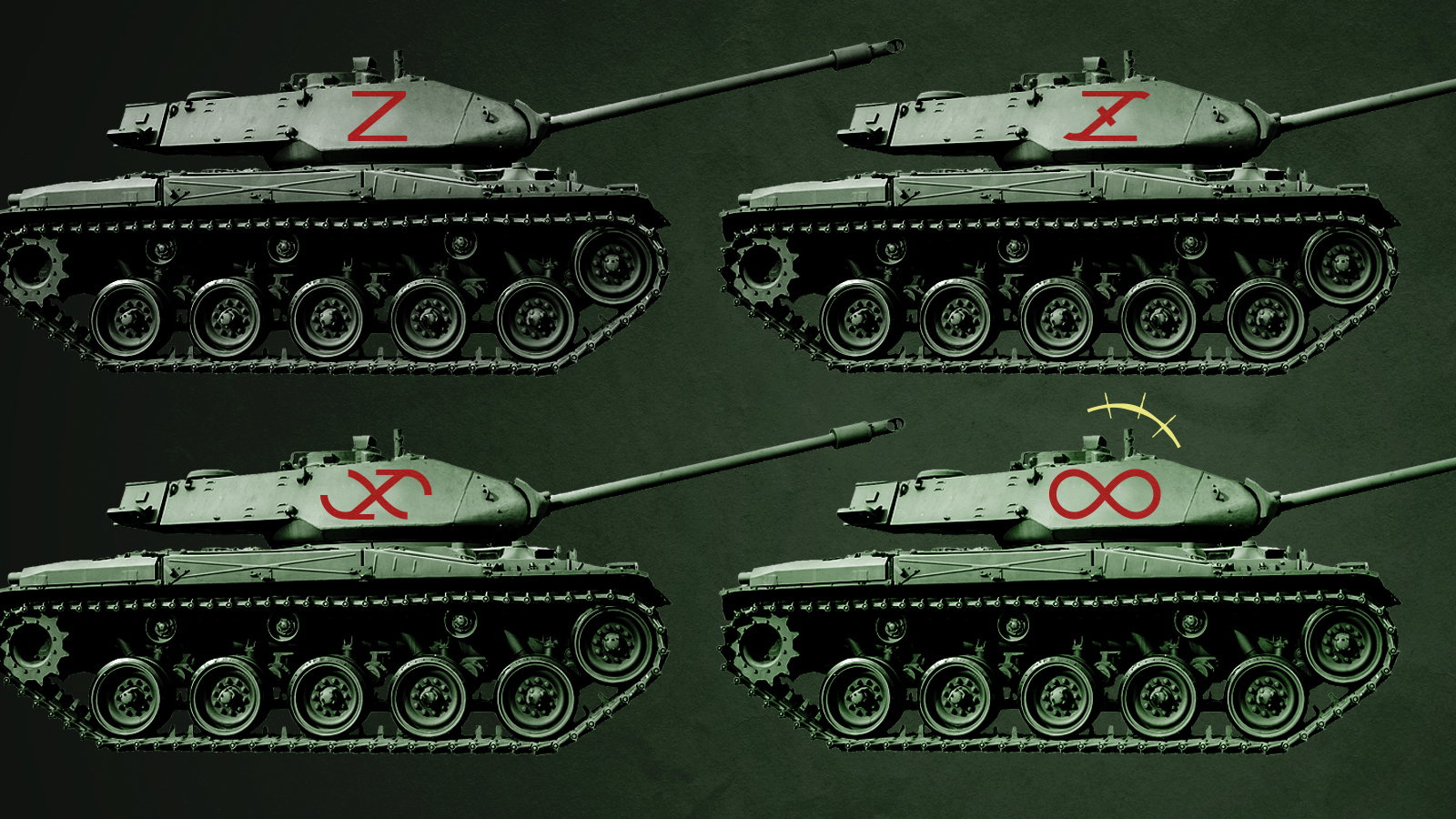Can the Korean War point the way out of the killing in Ukraine?


A free daily email with the biggest news stories of the day – and the best features from TheWeek.com
You are now subscribed
Your newsletter sign-up was successful
Nobody really knows how to end the war in Ukraine.
Vladimir Putin has thrown his own country into decline. Having committed Russia's prestige, power, and soldiers to combat in the name of "de-Nazifying" Ukraine, he can't very well end the invasion without something to show for it. And while Ukrainian President Volodymyr Zelensky has signaled his willingness to come to some sort of compromise, including giving up on his country's NATO aspirations, he also — understandably — remains defiant: "I'm ready for dialogue," he said last week. "We're not ready for capitulation."
A grinding, bloody stalemate without end seems possible.
The Week
Escape your echo chamber. Get the facts behind the news, plus analysis from multiple perspectives.

Sign up for The Week's Free Newsletters
From our morning news briefing to a weekly Good News Newsletter, get the best of The Week delivered directly to your inbox.
From our morning news briefing to a weekly Good News Newsletter, get the best of The Week delivered directly to your inbox.
"Weapons from the United States and its European allies will strengthen Ukraine's negotiation position. But without their direct involvement in the war, which is not going to materialize, Ukraine will not enjoy an outright victory and Russia will not suffer an outright defeat," Liana Fix and Michael Kimmage pointed out Wednesday at Foreign Affairs.
Perhaps the answer, then, is to end the war without really ending it.
It's been done before. Roughly 5 million people were killed in the Korean War between 1950 and 1953 before combat ended. But the war itself has never officially ended — instead, an armistice was signed in which both sides agreed to "insure a complete cessation of hostilities and of all acts of armed force in Korea until a final peaceful settlement is achieved." They stopped killing each other and kicked the problem of ending the war down the road.
They're still kicking. North Korea and South Korea, along with the United States and China, are still negotiating an end to the Korean War, nearly 70 years after the fighting ended. It's far from a perfect solution — technically, it's not a solution at all. North Korea remains dominated by a nuclear-armed authoritarian regime, the two countries still sometimes skirmish, and the whole situation is more than a little absurd: Everybody seems to want an official peace, but nobody really knows how to get there.
A free daily email with the biggest news stories of the day – and the best features from TheWeek.com
An uneasy peace is better than a hot war, however. More than 10 million Ukrainians have been forced to flee their homes, cities like Mariupol are being bombed into ashes, and thousands of people on both sides are dying ugly, needless deaths. Zelensky can't want to see his people continue suffering, and Putin shouldn't want his embarrassment to continue indefinitely.
Ending the war permanently will take delicate negotiating and involve fraught compromises that nobody really likes. That's hard stuff. Some creative thinking and bargaining will be needed. The best thing for now is not to worry so much about a formal peace agreement, but to stop the fighting itself, as soon as possible.
Joel Mathis is a writer with 30 years of newspaper and online journalism experience. His work also regularly appears in National Geographic and The Kansas City Star. His awards include best online commentary at the Online News Association and (twice) at the City and Regional Magazine Association.
-
 Minnesota's legal system buckles under Trump's ICE surge
Minnesota's legal system buckles under Trump's ICE surgeIN THE SPOTLIGHT Mass arrests and chaotic administration have pushed Twin Cities courts to the brink as lawyers and judges alike struggle to keep pace with ICE’s activity
-
 Big-time money squabbles: the conflict over California’s proposed billionaire tax
Big-time money squabbles: the conflict over California’s proposed billionaire taxTalking Points Californians worth more than $1.1 billion would pay a one-time 5% tax
-
 ‘The West needs people’
‘The West needs people’Instant Opinion Opinion, comment and editorials of the day
-
 The mission to demine Ukraine
The mission to demine UkraineThe Explainer An estimated quarter of the nation – an area the size of England – is contaminated with landmines and unexploded shells from the war
-
 The secret lives of Russian saboteurs
The secret lives of Russian saboteursUnder The Radar Moscow is recruiting criminal agents to sow chaos and fear among its enemies
-
 Is the 'coalition of the willing' going to work?
Is the 'coalition of the willing' going to work?Today's Big Question PM's proposal for UK/French-led peacekeeping force in Ukraine provokes 'hostility' in Moscow and 'derision' in Washington
-
 Ukraine: where do Trump's loyalties really lie?
Ukraine: where do Trump's loyalties really lie?Today's Big Question 'Extraordinary pivot' by US president – driven by personal, ideological and strategic factors – has 'upended decades of hawkish foreign policy toward Russia'
-
 What will Trump-Putin Ukraine peace deal look like?
What will Trump-Putin Ukraine peace deal look like?Today's Big Question US president 'blindsides' European and UK leaders, indicating Ukraine must concede seized territory and forget about Nato membership
-
 Ukraine's disappearing army
Ukraine's disappearing armyUnder the Radar Every day unwilling conscripts and disillusioned veterans are fleeing the front
-
 Cuba's mercenaries fighting against Ukraine
Cuba's mercenaries fighting against UkraineThe Explainer Young men lured by high salaries and Russian citizenship to enlist for a year are now trapped on front lines of war indefinitely
-
 Ukraine-Russia: are both sides readying for nuclear war?
Ukraine-Russia: are both sides readying for nuclear war?Today's Big Question Putin changes doctrine to lower threshold for atomic weapons after Ukraine strikes with Western missiles
